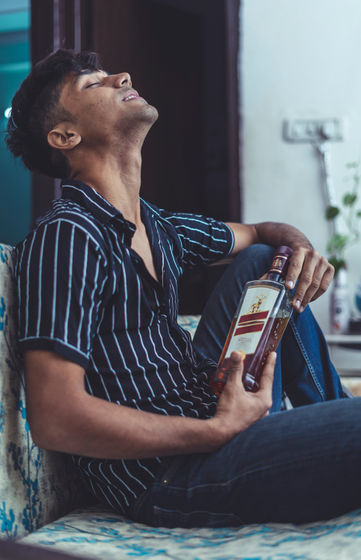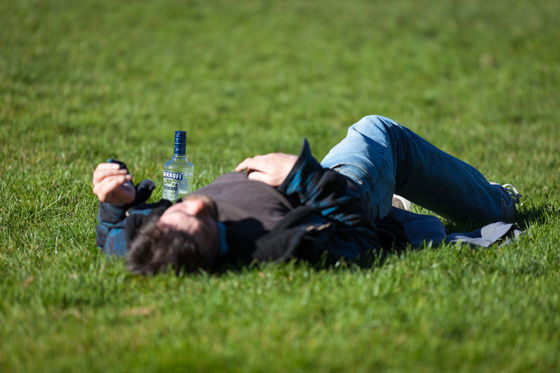Why does a hangover increase 'anxiety'?

'Hangovers' such as nausea, heartburn, and headaches that occur the next morning after drinking too much are rites of passage that most drinkers experience. Craig Gunn, who teaches psychology at the University of Bristol, England, explains the 'anxiety' that some people experience in addition to the general physical illness of a hangover.
'Hangxiety': why some people experience anxiety during a hangover
According to Mr. Gan, in the process of recovering from a hangover, 'physiological stress' similar to that when the body is under stress such as illness or injury occurs. Not only does this physiological stress cause changes in the immune system, it also stimulates the secretion of cortisol , also known as the stress hormone, which increases blood pressure and heart rate. This phenomenon of 'cortisol being secreted and blood pressure and heart rate rising' is said to occur even when anxiety is felt.
Studies have shown that changes occur in the brain during a hangover, and that dopamine -related brain function, which has the effect of suppressing anxiety, declines. A hangover is a combination of stress and sleep deprivation that makes you feel depressed and lowers your cognitive function, making you more likely to feel fatigue and stress. It may be difficult to cope with the anxiety created by stress.

According to a
In addition, Gunn's 2020 study found that hangover subjects performed poorly on tasks that required working memory and thinking flexibility, such as 'remembering memorized letters.' Since such working memory also has a function to suppress anxiety, Mr. Gunn insists that 'a hangover makes you feel sick and it becomes difficult to recover.'

However, according to a 2019 study , only 12% of respondents said they felt uneasy when they had a hangover. Some existing studies have shown that people who treat pain as 'exaggerated', such as exaggerating pain or imagining the worst from pain, are more likely to feel anxious and more likely to have a hangover. So, Gunn speculates that this may separate people who feel anxious from a hangover from those who don't.
In addition, people who are often driven by anxiety are also likely to become anxious due to a hangover, so Mr. Gunn has techniques for dealing with anxiety such as meditation and mindfulness, and drinking. While recommending measures such as making a plan for the next day properly and eliminating stress factors in advance before going to, or talking with a friend about a hangover and deepening ties when you have a hangover, 'Drinking completely It's best to stop or keep it in moderation as a hangover measure. '
Related Posts:
in Note, Posted by darkhorse_log







